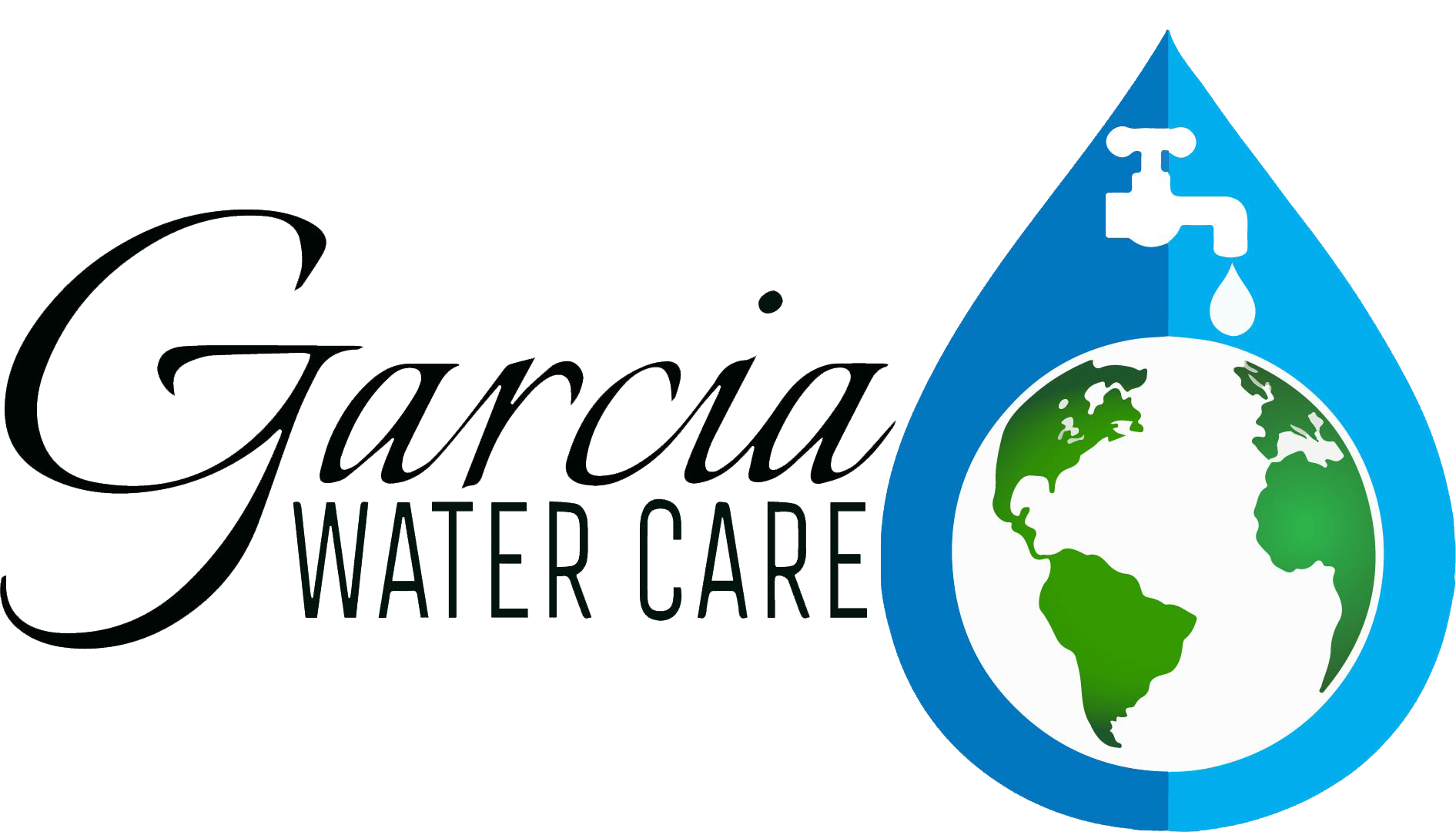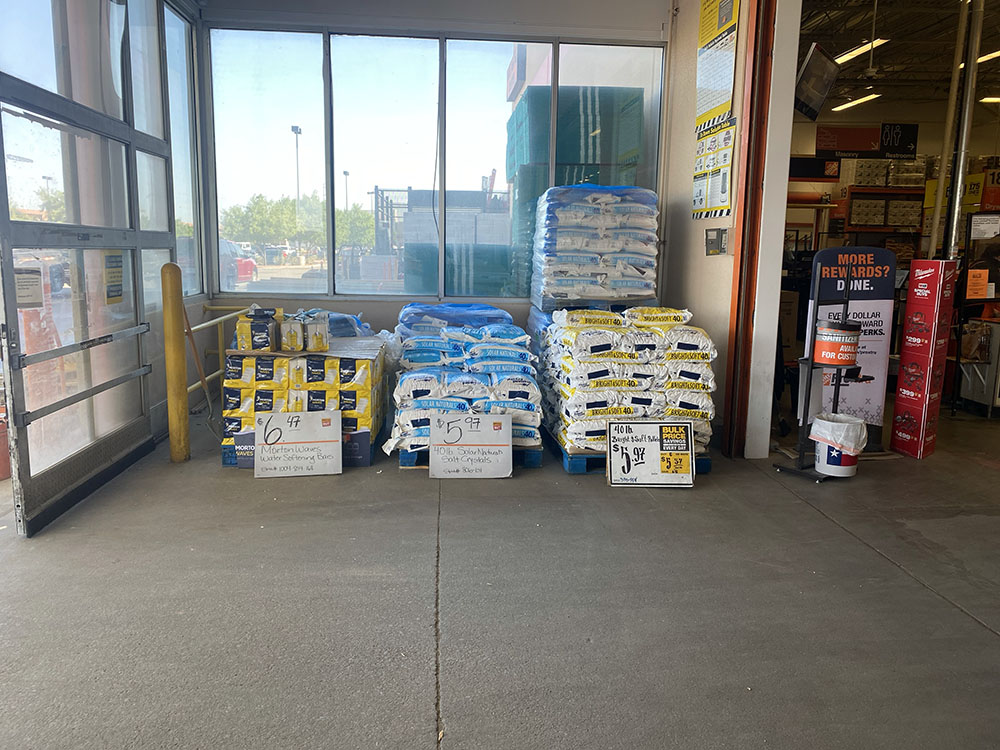Water Softener Salt
A must-have for all water softeners
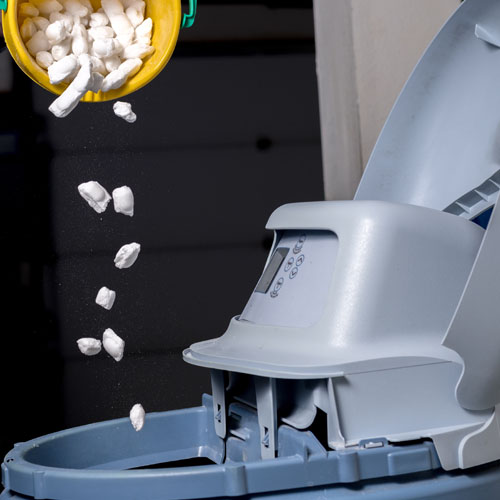
Keeping salt in your brine tank is a can’t miss for any water softener owner who wants to keep the soft water flowing and hard water out. Making sure that it regenerates (washes with saltwater brine) and has salt to clean itself with is a must. Using it without water softener salt or if your softener stops cleaning itself out is a recipe for more of the hard water issues you are trying to avoid. If your softener is not using salt correctly, you can expect to have way harder water than the regular city water you are trying to block. If your softener is not working correctly, it is better to switch to city water to minimize the impact of super hard water. Without access to salt the resin becomes saturated with calcium, magnesium, and iron, water keeps flowing through the filtration system, and that begins to leach into your water. Keep in mind that your softening resin is a hard water sponge that cleans itself with saltwater. There are many types of salt available, what salt should you use?
When it comes to the salt available at any hardware store, like Home Depot, you will find many options, including some made with evaporated sea salt, rock salt, salt crystals, sodium pellets, and potassium chloride pellets.
Isn’t salt just salt? Well, the answer is, it’s the same but different. Some types of salt are more readily available and cheaper than others, while some are more expensive and of higher purity. Other salts should never be used but they all are sodium so they are basically the same unless you prefer potassium pellets for your softener.
So what salt should you get for your water softener at your local hardware store? Here are the types we found and the option we choose to deliver to our customers.
Salt Types Available
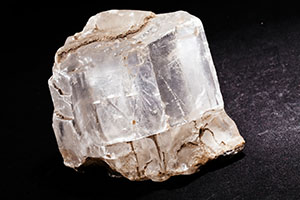
Rock Salt (halite)
Rock salt is sodium chloride. If that sounds familiar, it’s because you also have it on your kitchen table. By no means is rock salt suitable for human consumption – purification is needed before human consumption. Rock salt is cheap and readily available and very dirty. Water softener salt should be clean to minimize turbidity. This type of salt is used for managing salt and snow build-up; never use it in your water softener.
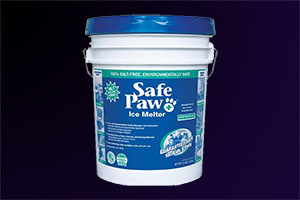
Ice Melt
Ice melt comes from the same quarry as rock salt and is also used for deicing roads. The difference is that sodium chloride and magnesium chloride and/or calcium chloride are added to help with how it melts ice and snow. It comes in large bags (50 lbs) and can confuse the salt used in a water softener. Do not use this for your water softener unless you want white residue coming out of any faucets and a softener that doesn’t work correctly.
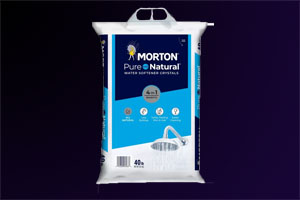
Salt Crystals
Salt crystals are the most widely used water softener salts in commercial water softeners. This salt has a greater surface area because of the many pellets, so it is more efficient at making the brine. Unfortunately, they are also only 99.6 pure. As a result, they leave behind more silt. In addition, this type of salt is harder to dissolve because of its impurity.
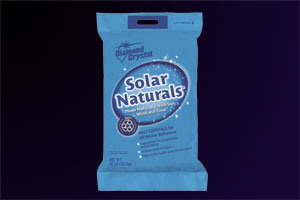
Solar Sea Salt
Solar sea salt is made from evaporated seawater. This salt has had most of the hard minerals removed through boiling and evaporation – this makes it slightly less pure (99.5% purity) than salt crystals; it’s less expensive than evaporated salt or salt crystals. However, impurities in your hard water will make it harder to dissolve, making it less effective.
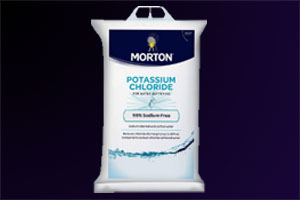
Potassium Chloride Pellets
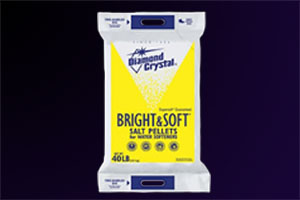
Evaporated Salt Pellets (Sodium Chloride)
Evaporated water softener salt pellets are made by refining sodium chloride salt into pure sodium chloride. This will produce a water softener salt that is 99.9% pure. For this reason, this is our recommended option to anyone looking for the best salt for a water softener salt. In addition, this type of salt will help keep your softener running cleaner longer in any clean brine tank. .
